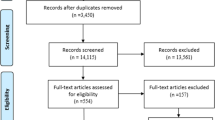Opinion statement
Treatment of small bowel lymphoma requires the expertise of medical and surgical subspecialists. The two most important factors that determine the optimal treatment are histology and staging of small bowel lymphoma. Other factors that may affect treatment include age, multiple areas of involvement, tumor size, and perforation. At present, the best treatment for gastrointestinal lymphoma (stage IE disease) is limited resection of the tumor, followed by postoperative radiotherapy. The cure rate is approximately 75% for stage IE patients, even for those with aggressive histologic types. Chemotherapy is reserved for advanced-staged tumors. In patients with regional nodal involvement or extranodal involvement confined to one side of the diaphragm (pathologic stage IIE disease), chemotherapy should be combined with radiation therapy. The best chemotherapy regimen depends on the histology of the tumor. For diffuse large B-cell lymphoma, the most frequently diagnosed subtype of non-Hodgkin’s lymphoma (NHL), the CHOP regimen (cyclophosphamide, doxorubicin, vincristine, and prednisone) is still the gold standard. Clinical trials have been conducted evaluating the new monoclonal antibody rituximab, along with the CHOP regimen for primary NHL. Results have been promising. The use of rituximab in the treatment of extranodal lymphoma is still being evaluated. Low-grade lymphomas have a more indolent course and do not respond as well to combination chemotherapy agents as the high-grade tumors. Fludarabine alone or in combination with cyclophosphamide is effective as a first-line agent for patients with low-grade NHL. It has also been used to treat relapsed or refractory low-grade NHL. Some promising results have been reported using the chemoimmunotherapy agent rituximab alone or in combination with fludarabine for the treatment of low-grade NHL. However, clinical trials are still needed. In patients with nodal involvement on both sides of the diaphragm or other extranodal involvement such as bone marrow or liver (pathologic stages IIIE and IVE), the disease is managed primarily with combination chemotherapy. Radiation therapy is reserved for treatment of initially bulky tumor sites, treatment of residual disease following chemotherapy, or serious local problems. The disease can be controlled in 25% to 40% of patients with stage IIIE or IVE disease. As with stage IIE disease, the optimal chemotherapy regimen depends on the histologic subtype of NHL.
Similar content being viewed by others
References and Recommended Reading
Gill SS, Heuman DM, Mihas AA: Small intestinal neoplasms. Clin Gastroenterol 2001, 33:267–282. A very detailed review of the evaluation of small intestinal neoplasms.
Gray GM, Rosenberg SA, Cooper AD, et al.: Lymphomas involving the gastrointestinal tract. Gastroenterology 1982, 82:143–152.
Domizio P, Owen RA, Shepherd NA, et al.: Primary lymphoma of the small intestine. Am J Surg Pathol 1993, 17:429–442.
DiSario JA, Burt RW, Vargas H, et al.: Small bowel cancer: epidemiological and clinical characteristics from a population-based registry. Am J Gastroenterology 1994, 89:699–701.
Haber DA, Mayer R: Primary gastrointestinal lymphoma. Semin Oncol 1988, 15:154–169.
Rowe M, Gregory C: Epstein-Barr virus and Burkitt’s lymphoma. Adv Viral Oncol 1985, 8:237–259.
Cappell MS, Chow J: HTLV-I-associated lymphoma involving the entire alimentary tract and presenting with an acquired immune deficiency. Am J Med 1987, 82:649–654.
Gonzales-Vitale JC, Gomez LG, Goldblum RM, et al.: Immunoblastic lymphoma of small intestine complicating late-onset immunodeficiency. Cancer 1982, 49:445–449.
Matuchansky C, Touchard G, Lemaire M, et al.: Malignant lymphoma of the small bowel associated with diffuse nodular lymphoid hyperplasia. N Engl J Med 1985, 313:166–171.
Penn I: The occurrence of malignant tumors in immuno-suppressed states. Prog Allergy 1986, 37:259–300.
Rambaud J-C: Small intestinal lymphomas and alphachain disease. Clin Gastroenterol 1983, 12:743–766.
Crump M, Gaspodarowicz M, Shepherd F: Lymphoma of the gastrointestinal tract. Semin Oncol 1999, 26:324–337. A good general review of gastrointestinal lymphomas.
Salmon S, Sartorelli A: Cancer chemotherapy. In Basic and Clinical Pharmacology, edn 5. Edited by Katzung BG. Norwalk, CT: Appleton and Lange; 1992:769–798.
Coiffier B: Rituximab in combination with CHOP improves survival in elderly patients with aggressive non-Hodgkin’s lymphoma. Semin Oncol 2002, 29(Suppl 6):18–22.
Drug Topics Red Book, edn 105. Edited by Cardinale V. Montvale, NJ: Medical Economics Co.; 2001:269, 296, 320, 555.
Multani P, White CA, Grille-Lopez A: Non-Hodgkin’s lymphoma: review of conventional treatments. Curr Pharm Biotechnol 2001, 2:279–291. A comprehensive and well-written review of current treatment options of non-Hodgkin’s lymphoma.
Czuczman MS, Fallon A, Mohr A, et al.: Rituximab in combination with CHOP or fludarabine in low-grade lymphoma. Semin Oncol 2002, 29(Suppl 2):36–40.
Mauch P: Follicular non-Hodgkin’s lymphoma: the role of radiation therapy. Ann Hematol 2001, 80:B63-B65.
Czuczman MS: Immunochemotherapy in indolent non-Hodgkin’s lymphoma. Semin Oncol 2002, 29(Suppl 6):11–17.
Hainsworth JD, Burris HA III, Morrissey LH, et al.: Rituximab monoclonal antibody as initial systemic therapy for patient with low-grade non-Hodgkin lymphoma. Blood 2000, 95:3052–3056.
Stevenson FK, Zhu D, Rice J: New strategies for vaccination and immunomodulation in NHL. Ann Hematol 2001, 80:B132-B134.
Author information
Authors and Affiliations
Rights and permissions
About this article
Cite this article
Rawls, R.A., Vega, K.J. & Trotman, B.W. Small bowel lymphoma. Curr Treat Options Gastro 6, 27–34 (2003). https://doi.org/10.1007/s11938-003-0030-9
Issue Date:
DOI: https://doi.org/10.1007/s11938-003-0030-9




